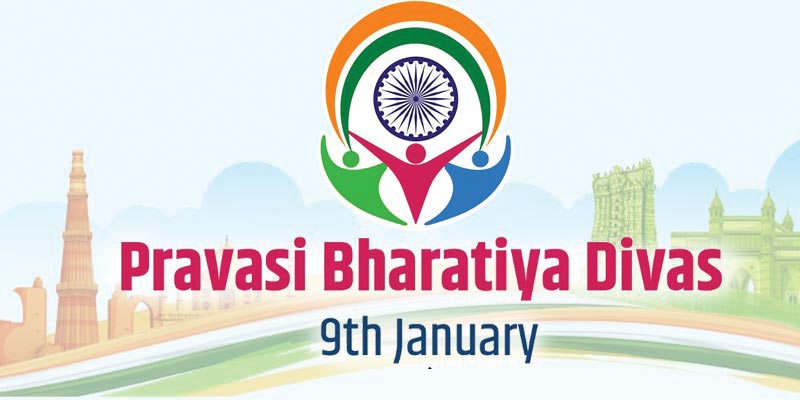- India
- Jan 09
Govt celebrates Pravasi Bharatiya Divas
• The Pravasi Bharatiya Divas (PBD) is celebrated on January 9 to recognise the contribution of the overseas Indian community towards the growth and development of India.
• January 9 was chosen for PBD as it was on this day in 1915 that Mahatma Gandhi returned to India from South Africa and led its freedom struggle.
• Prime Minister Narendra Modi extended greetings on Pravasi Bharatiya Diwas, hailing the dedication of the Indian diaspora worldwide towards preserving India’s rich heritage and strengthening global ties.
• Theme-based PBD Conferences are held once every two years with participation from overseas diaspora experts, policy makers and stakeholders.
• During the convention, selected overseas Indians are honoured with prestigious Pravasi Bharatiya Samman Awards, to recognise their contribution in various fields both in India and abroad.
The Indian diaspora
• The government of India recognises the importance of the Indian diaspora as it has brought economic, financial, technological and global benefits to India.
• Today, ‘diaspora’ is commonly understood to include Non-Resident Indians (NRIs), Persons of Indian Origin (PIOs) and Overseas Citizens of India (OCI).
• PIO and OCI cardholders have been merged under one category OCI in 2015.
• As on December 25, 2021, India has a large diaspora in the world with over 32 million including over 13 million NRIs and 18 million PIOs spread across the globe.
• Migration from India is largely motivated by labour and family reasons. The Indian diaspora consists predominantly of persons who are working, but also students and people who moved for family reasons. The diverse Indian diaspora also includes highly-skilled scientists, engineers and doctors.
Role of diasporas in the development of countries of origin
• Diasporas play an important role in the development of their countries of origin by promoting foreign investment, trade, innovation, access to technology and financial inclusion.
• Remittances sent by migrants also improve the livelihoods of families and communities in countries of origin through investments in education, health, sanitation, housing and other infrastructure.
• Returning migrants, in addition to bringing back the experience and knowledge acquired abroad, often contribute to their societies of origin as entrepreneurs and by creating jobs.
• Many countries, particularly low and middle-income countries, are increasingly seeking to leverage their transnational populations through the development of financial instruments and innovative financing mechanisms such as “diaspora bonds”, diaspora pension schemes and the securitization of remittance flows.
• In countries affected by political conflict, remittances often provide a lifeline, helping people and households in situations of forced displacement cope with economic insecurity.
Difference between NRI, PIO and OCI
Non-Resident Indian (NRI)
An NRI is an Indian who is a resident in a foreign country.
Person of Indian Origin (PIO)
A Person of Indian Origin (PIO) means a foreign citizen (except a national of Pakistan, Afghanistan Bangladesh, China, Iran, Bhutan, Sri Lanka and Nepal):
1) Who at any time held an Indian passport; or
2) Who or either of their parents/ grand parents/ great grandparents was born and permanently resident in India as defined in Government of India Act, 1935 and other territories that became part of India thereafter provided neither was at any time a citizen of any of the aforesaid countries ( as referred above); Or
3) Who is a spouse of a citizen of India or a PIO.
Overseas Citizen of India (OCI)
A foreign national, who was eligible to become citizen of India on January 26, 1950 or was a citizen of India on or at any time after January 26, 1950 or belonged to a territory that became part of India after August 15, 1947 is eligible for registration as Overseas Citizen of India (OCI).
OCIs are entitled to a multipurpose, multiple entry, lifelong visa allowing them to visit India at any time, for any length of time and for any purpose. They are exempted from police reporting for any length of stay in the country. They have also been granted all rights in the economic, financial and education fields in parity with NRIs except, the right to acquisition of agricultural or plantation properties.
Manorama Yearbook app is now available on Google Play Store and iOS App Store

